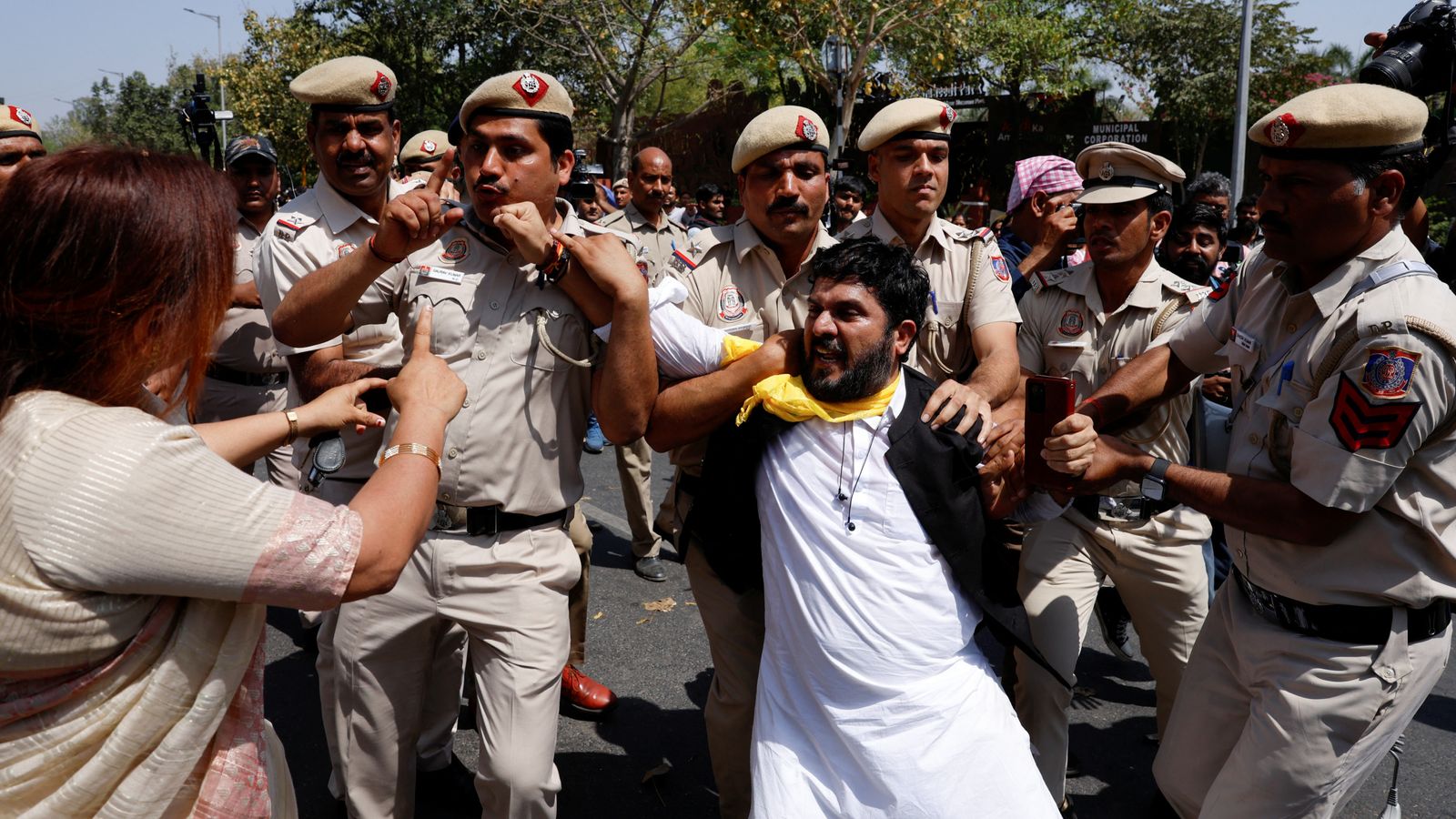Protests in Israel as parliament approves key part of controversial changes to justice system


Israel’s parliament has signed off a key part of Prime Minister Benjamin Netanyahu’s controversial plan to reshape the justice system.
Huge protests have been taking place in recent months, with thousands of military reservists now saying they won’t serve under a government pushing through such changes.
Business leaders and legal officials have also voiced opposition and say it will diminish the courts’ ability to keep government power in check.
Protesters also see it as a power grab by Mr Netanyahu – who’s on trial on corruption charges – and fear it is setting Israel on the path to dictatorship.
Mr Netanyahu and his far-right allies are determined to push ahead, and on Monday politicians approved a measure stopping the Supreme Court blocking some government decisions they deem to be “unreasonable”.
Opposition politicians chanted “shame” and stormed out the chamber in Jerusalem, leaving supporters to approve the change 64 votes to zero.
Justice minister Yariv Levin called it the “first step in an important historic process” of reshaping the influence of unelected judges, but opposition leader Yair Lapid said it meant Israel is “headed for disaster”.
Ahead of the vote, water cannon were again used on demonstrators who blocked the road to the Knesset, Israel’s parliament, while some petrol stations and shopping centres closed in protest.
However, there have also been rallies in support of the prime minister’s plans, such as in central Tel Aviv.
Monday’s vote came soon after Mr Netanyahu, 73, was discharged from hospital after having a pacemaker fitted.
Advertisement
His resolve to see the changes through has drawn concern from the US, a staunch supporter of Israel, with President Joe Biden cautioning against pushing through laws that are causing so much division.
“Given the range of threats and challenges confronting Israel right now, it doesn’t make sense for Israeli leaders to rush this – the focus should be on pulling people together and finding consensus,” Mr Biden told Axios on Sunday.

In televised comments on Monday evening, Mr Netanyahu said he hoped to reach an agreement with the opposition by November and claimed the courts would stay independent.
As well as curbing judges’ power, the plan would also change the way they are selected – with opponents fearing it could mean corruption and improper appointments.
The outcry could also have repercussions for Israel’s powerful military.
Thousands of reservists say they won’t serve because of the plans, forcing military chief Lieutenant General Herzi Halevi to address the controversy on Sunday.
Please use Chrome browser for a more accessible video player

0:29
18 July: Protesters in Israel clash with police
In a letter to soldiers, he said: “If we will not be a strong and cohesive military, if the best do not serve in the IDF, we will no longer be able to exist as a country in the region.”
Mr Netanyahu paused his plan in March after strikes shut down parts of the economy and disrupted flights.
However, after compromise talks failed last month, he said he was pushing on with the overhaul.
A joint statement from the Board of Deputies of British Jews and the Jewish Leadership Council said they were “deeply disappointed” that efforts to find a middleground had so far failed.
They said: “Now that the first law has passed, we plead with Israeli leaders to return urgently to dialogue and to prevent the deepening of a constitutional crisis which will do tremendous damage to the very fabric of Israeli society, its regional security and global status.”
A statement from Yachad – the liberal wing of the UK Jewish community – said Monday’s vote was the first step in the government’s plan to give itself “unmitigated powers”.
“The values and principles on which Israel was founded are being eroded by this extremist government – Israel can no longer claim it wishes to be a democracy,” it said.

